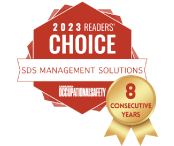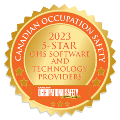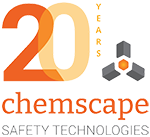NORM Exposure Control Plans
Chemscape offers NORM (Naturally Occurring Radioactive Material) exposure control plans (ECPs) based on our Chemical Hazard Assessment and Management Program (CHAMP) tool and industrial hygiene services.
What is NORM?
NORM, or Naturally Occurring Radioactive Materials, consists of materials enriched with naturally occurring radioactive elements, usually industrial waste or other manufacturing by-products. These elements primarily include radioactive isotopes of uranium, thorium and potassium, along with their decay products such as radium and radon. These elements are normally present in the Earth’s crust at very low concentrations, although human activities can greatly increase their concentration.
How Are Workers Exposed to NORM in The Workplace?
Workers can be exposed to NORM through external and internal sources. External exposure routes generally consist of irradiation from NORM, while internal exposure can occur through, inhalation, ingestion and absorption through the skin. Oil and gas (O&G) workers face the greatest risk of exposure, since any of the following components can be contaminated with NORM:
- Dehydrators
- Desalinators
- Piping runs
- O&G separator flow lines
- Production manifolds
- Storage tanks
- Wellheads
- Valves
Where is NORM Found?
The Canadian Guidelines for the Management of Naturally Occurring Radioactive Materials (NORM) reports that the following six industries may produce NORM in enough quantities to require radiation protection practices:
- Mineral extraction and processing
- Oil and gas production
- Metal recycling
- Forest products
- Water treatment facilities
- Tunneling and underground workings
What Are the Health Risks of NORM?
The primary health risk of NORM is the potential for developing cancer, since the radiation that it emits is a known carcinogen. The most hazardous isotopes in NORM include radium 226, 228 and radon 222 in addition to their decay products. These radionuclides become concentrated in bones, making bone cancer one of the biggest risks of NORM exposure. This process occurs over time, so the health problems caused by NORM are largely the result of long-term exposure.
How Do You Minimize NORM Exposure?
Minimizing exposure to NORM generally consists of minimizing the time that workers spend in an areas where NORM may be present. Standard radiation protection programs are effective against NORM, although the specific procedures depend on the types and concentrations of radionuclides present.
These procedures generally involve the use of engineered controls and personal protection equipment (PPE), especially respirators in areas where NORM could become aerosolized.
The Canadian Guidelines for the Management of Naturally Occurring Radioactive Materials (NORM) provides an overview of NORM protection measures, which may also be regulated by individual provinces and territories.
Worker Responsibilities
It’s important that workers understand both the health hazards is critical to increasing awareness and to take the necessary precautions when working with NORM. Only workers who have been trained in radiation safety should be handling NORM- contaminated products or equipment. Workers should avoid eating, drinking and smoking within proximity to areas where NORM may be present.
Employer Responsibilities
Employers must provide workers with necessary safety training and education for working and proper handling of NORM. Employers must also hold all levels of accountable in minimizing worker exposure to NORM by developing, updating and maintaining exposure control plans. Employers must minimize operations that may generate NORM as well as work to minimize worker time spent in NORM-contaminated areas.
Trusted NORM Exposure Control Plans
The team at Chemscape Safety Technologies is proud to be the leading developer of chemical management solutions, which includes the creation of NORM exposure control plans. Our exposure control plans are uniquely designed for the operations and business needs of our clients while maintaining industry standards and regulations.
Contact Chemscape Safety Technologies today to learn more about custom NORM exposure control plan development for your business.



